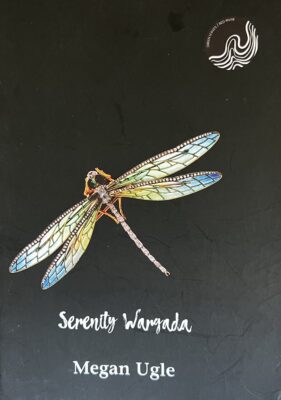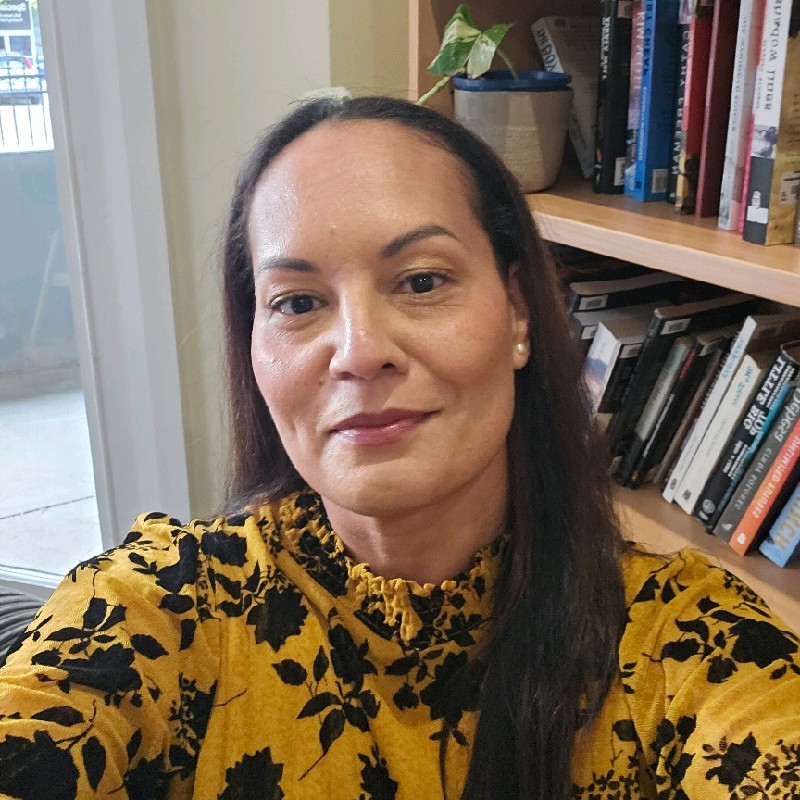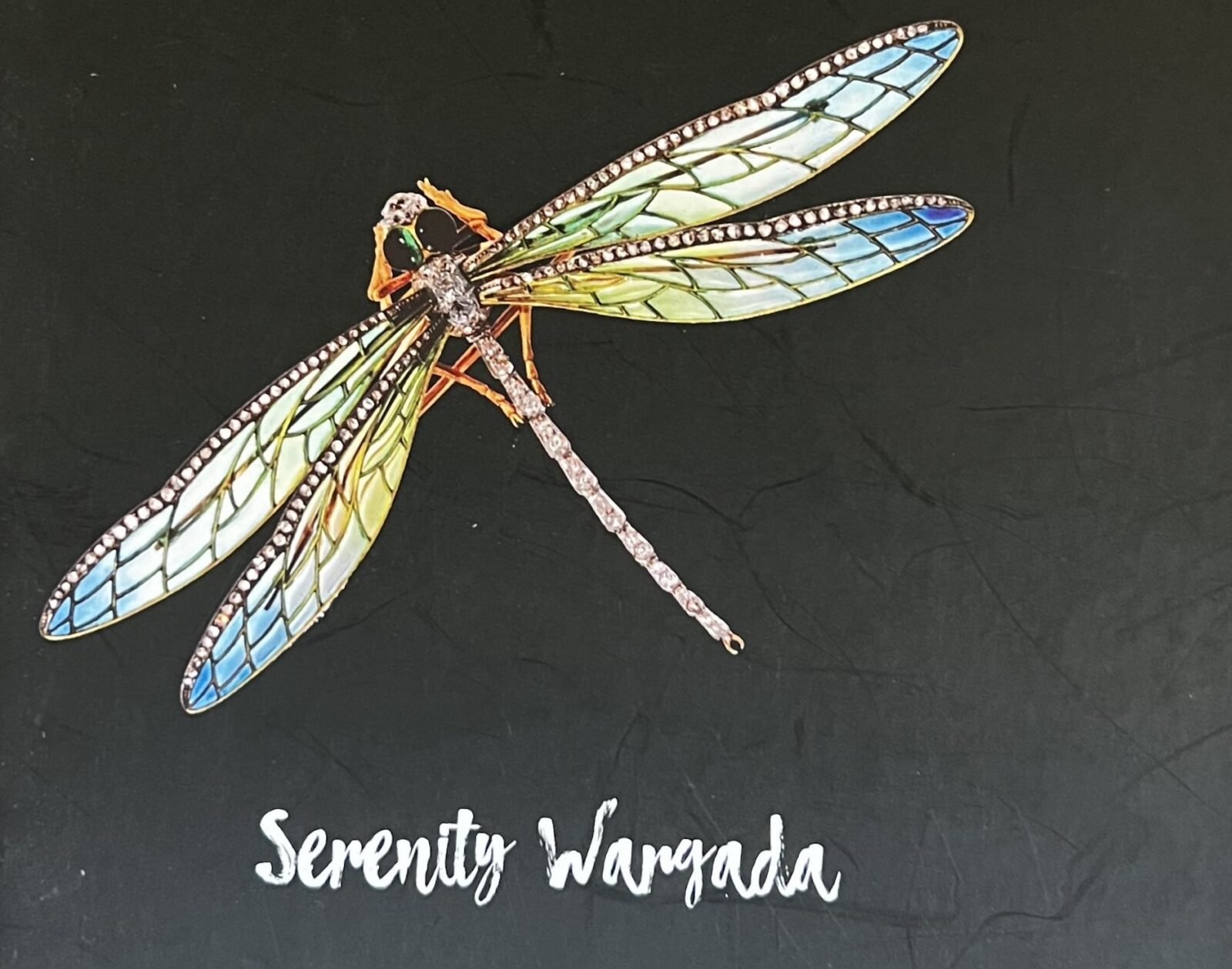
Intense and Insightful
Poetry makes us feel more connected. Poetry turns mundane things to meaningful and magical. And it cannot be slain by time. ‘Serenity Wargada’ (Searching Peace) is a collection of poems written by Megan Ugle. She explores the meaning of peace and harmony in life. Megan is the Indigenous poet from Ballardong country, Western Australia. She is determined to leave a mark in words, to transmute feeling into the nuances of arts.
Megan Ugle’s debut collection ‘Serenity Wargada’ speaks for herself and for others when she feels the bites of injustice and discrimination meted to the aboriginal people of her country, Australia. Like many other poets, she is also a quiet witness, sometimes hesitant but she has a wonderful way of looking attentively at the life. Her works shimmers between the earth and the sky, between the dullness of ashes and the brightness of stars.
She is most moving as a poet of her native place. Her poems are devoted to precision and clarity. And her blending of personal and social themes are commendable. At times, she doesn’t want to be inward, observing the natural world, preserving the wilderness both within and without.
The poet blends the pressure of mortality with the swell of transcendence. Her sense of the local- rituals and stories around rivers and mountains, the splendid simplicity of their lives manifest in transfigurations of the physical universe.
Her gift of transfiguring the ordinary and pointing the wonders and warmth at the heart of daily life. Her poems are haunted by voices and memories. Megan Ugle anchors her reflections firmly on the real world. An accurate observer, she surprises the reader with rare insights.
Charmaine Papertalk Green writes in her blurb, ‘Serenity Wargada takes the reader on a journey onto and into Noongar country weaving together stories of fire, trees, water, wildflowers, seasons and the moon.’
The poet shows a penchant for fragments. Yet her statement and reiteration create the feeling in no uncertain terms. Sometimes her distinctive lyrics have a gentle touch and a serious undercurrent.
river rocks
you are so still, so silent
but-
I envy you
Because you don’t want
Or need anything
To just be (River Rocks)
There is a strong element of fantasy in how the poet in her poems dreams her way into the life of objects from her own and her family’s past. Here, the imagination becomes like an organ of perception, a means of feeling, an act of soul-making.
dreaming, we must be dreaming
tell ourselves our own stories
we are the ones that holds the key
to our very own destiny (Which Way Dreaming)
‘ Poetry is a deep inner calling,’ says Pablo Neruda. Here, Megan reflects on many aspects of her life and family history in tones that range from sorrow through wistfulness to wisdom. They have the jaunty quality of recollection, of trying to recall the past as honestly as possible, reporting back from the front. There is a great emotional courage in her book of thresholds and crossings, of injustice and discrimination.
Walking through this empty city
confused by hopes and dreams
I’m bound by a mirage of
endless possibility, it seems (Bullgnock)
Jennifer Compton rightly mentions in her blurb, ‘ Megan Ugle speaks for herself in this musical evocation of the way things are, and the way things were.’ Megan says beautifully in these lines,
I tell my friends about my poetry
I have all the roses I need
Then I look around and see
The rose of my eye. ( The Rose of My Eye)
The poet perhaps talks to herself in search of peace in this engaging poem, ‘I have a voice/ I am not going anywhere/ I’m here to stay/ You accept me/ I accept you/ We listen to each other/ And come together/ Equally/ Amicably. (Listen).
Megan’s poems steer memories of family and underscore the significance of family through her childhood especially her father’s memories. And the poet explores a complex, changing world by conjuring up childhood and beyond. At times, her voice sounds displaced and lost. Her poems reflect in a subtle but permanent state of cultural shock.
I am in my own country yet
I feel like a stranger
Who does not belong
I feel like the minority
Within our very own boodija (country)
Displaced and dislodged
Our old people had to let go their own identity
Carry a dog tag to survive. (Minority).
She shows us scenes of how past events and relationships may influence her journey to life and the choices she makes. Her poems convert irony into idyllic, never allowing the readers to wallow in sentimentality and emotional expanse. In the poem Cultivated Patience she talks about the decisiveness of her family tree and remarks at the end, ‘Everything evolves, /our blueprint, our design/ this journey through time.
A sensitive and assured collection, the poet offers a rewarding poetic insight into a life that seems both familiar and unfamiliar in the present context and turn out at the end a very different landscape.
‘Serenity Wargada’ by Megan Ugle, brings much pleasure to the readers, and silence and inference are as compelling as voice.
Reviewed By Gopal Lahiri

Gopal Lahiri
Gopal Lahiri is a Pushcart nominee, bilingual poet, critic, editor, writer, and translator. He is the author of 31 books published, (10 books in Bengali and 21 books in English) including six solo/jointly edited books and two joint books. His poetry and prose are published across more than 100 anthologies as well as in eminent journals of India and abroad. His poems are translated in 18 languages and published in 16 countries. He is an experienced book reviewer. His book reviews have been published across various journals and newspapers in India and abroad. He lives in Kolkata, India.

Megan Ugle
Megan Ugle was born in Beverley, Western Australia and grew up in Brookton. Megan has three children and lives in Boddington. Megan is a descendant from Whadjuk, Ballardong, and Wilmen Noongar families and loves writing about daily inspirations.
